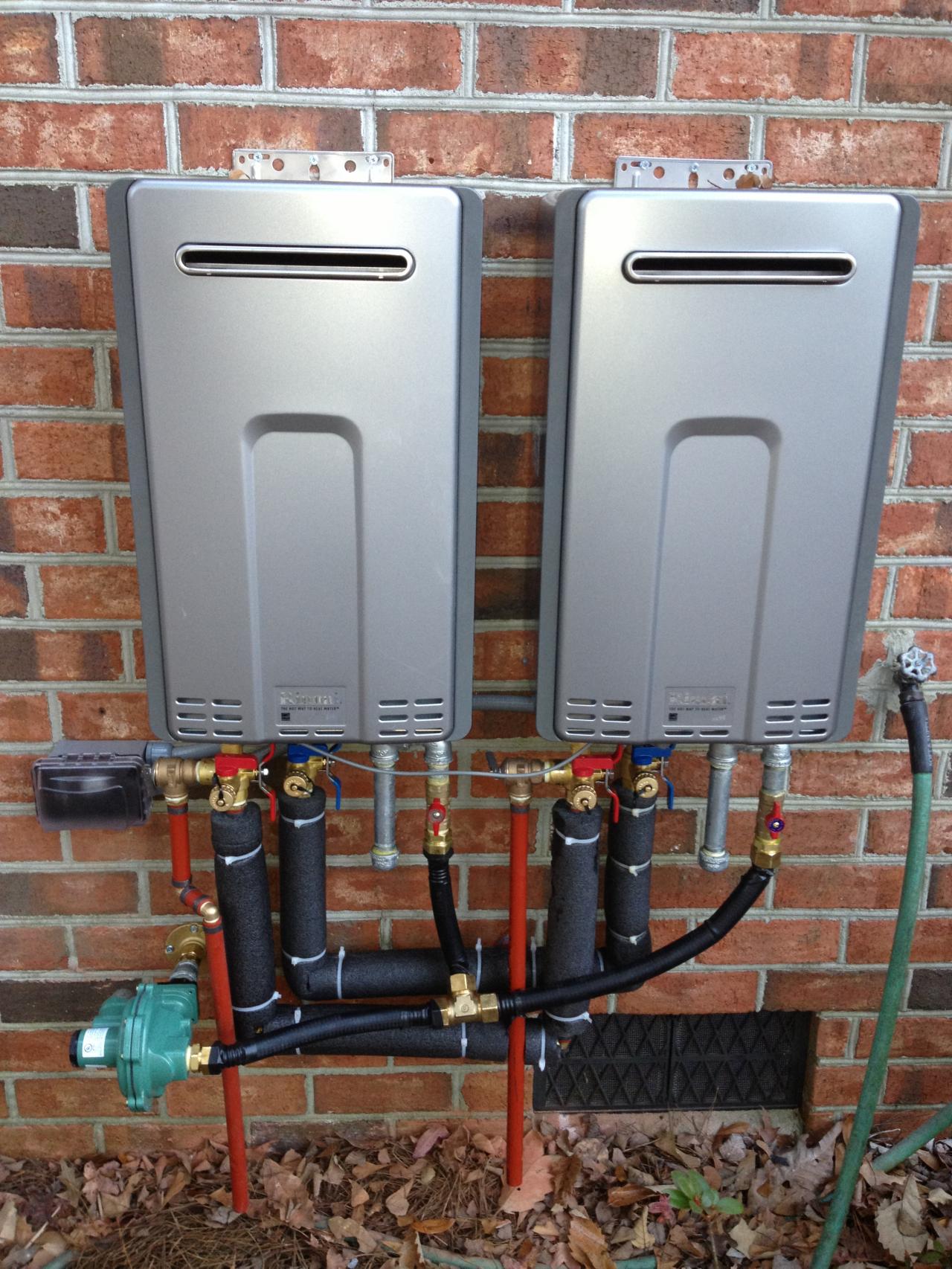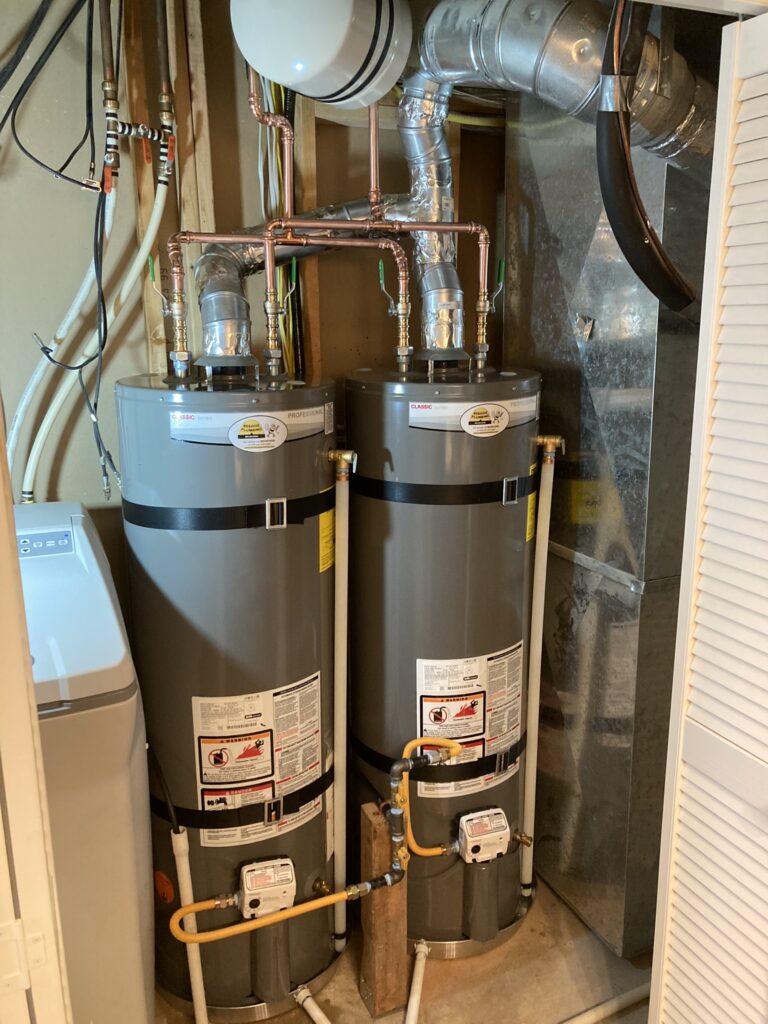Certified Gas Leak Repair for Your Safety and Comfort
Certified Gas Leak Repair for Your Safety and Comfort
Blog Article
Complete Guide to Water Heating SystemInstallation and Replacement
Understanding the intricacies of water heating unit installment and replacement is essential for property owners looking for to guarantee performance and reliability in their hot water supply. From picking the proper type and dimension to implementing a seamless installment procedure, numerous aspects have to be considered to prevent typical risks. This overview will supply you with the needed actions and insights to browse the intricacies of this home enhancement job, while likewise stressing vital upkeep practices that can lengthen the life of your system. As you explore these aspects, you might locate yourself reassessing your current configuration and recognizing areas for renovation.
Sorts Of Water Heaters
When thinking about water heating unit installment and substitute, it is important to recognize the numerous sorts of water heating systems available in the marketplace. The most typical kinds consist of storage tank water heaters, tankless hot water heater, heatpump hot water heater, and solar hot water heater.
Storage tank water heaters are traditional systems that save a specific quantity of hot water, making them readily available when required. They are normally more economical upfront yet may sustain greater power prices gradually due to warmth loss. In comparison, tankless hot water heater supply warm water as needed, getting rid of the demand for storage space. They are energy efficient and can save space, however their preliminary expenses are generally greater.
Heatpump hot water heater make use of electrical energy to move heat from the air or ground to warmth water, offering significant power cost savings however needing more area and specific installment problems. Finally, solar water heaters harness solar power to heat water, providing an environment-friendly option with prospective long-term price savings, although they commonly need a backup system for over cast days.
Recognizing these alternatives guarantees educated decisions regarding installment and substitute, dealing with certain demands and preferences.
Choosing the Right Dimension
Choosing the ideal size for a hot water heater is vital to make certain optimal efficiency and effectiveness. An unit that is also small will certainly struggle to satisfy family demands, leading to irregular warm water schedule and increased energy consumption. Alternatively, an oversized hot water heater can cause unnecessary power waste and higher utility bills.
To establish the ideal size, consider the home's peak warm water use. This can be calculated based upon the number of residents and their common warm water needs. A family of four might call for a water heater with a capability of 50 to 80 gallons, depending on the use patterns, such as synchronised showers and washing.
Additionally, assess the healing rate, which determines just how quickly a heating system can restore warm water after it has actually been used. For tankless models, emphasis on the flow price, determined in gallons per minute (GPM), to ensure it satisfies the household's synchronised demand.

Installment Refine Review

Next, the old unit needs to be detached and removed, taking treatment to follow neighborhood codes and laws concerning disposal. Once the old unit is out, the brand-new hot water heater can be positioned in area. This action includes attaching the water system lines, making sure that all fittings are safe and secure and leak-free.
After developing water links, it's necessary to connect the power supply, whether electric or gas, complying with the manufacturer's guidelines meticulously. As soon as all connections are made, the system ought to be loaded with water, and the power can be turned back on. It's crucial to examine for leaks and make certain the water heater is functioning correctly prior to completing the setup procedure.
Usual Setup Mistakes

Another regular blunder is overlooking to comply with local codes and laws. Failing to adhere to these criteria can not just lead to safety and security hazards yet may also result in expensive penalties or the demand for pricey reinstallation.
Failing to protect links or utilizing the incorrect kind of fittings can lead to leaks and water damages. By staying clear of these typical setup errors, house owners can guarantee their water heater runs securely and efficiently, optimizing efficiency and long life.
Upkeep Tips for Durability
Correct maintenance of a hot water heater is necessary for its long life and optimum performance. Normal evaluations and maintenance can stop costly repairs and expand the home appliance's lifespan. Begin by examining the temperature level setup; it must generally be set between 120 ° F and 140 ° F for ideal power performance and security.
Every 6 months, flush the storage tank to remove sediment accumulation, which can harm heating effectiveness and trigger rust. To do this, shut off the heater, link a pipe to the Discover More Here drain valve, and allow the water run until it is clear.
When they are worn away,Anode poles should be checked annually and changed. These rods help prevent tank deterioration by attracting harsh elements in the water.
Additionally, check the pressure safety valve frequently to ensure it is operating correctly. This shutoff is essential for preventing too much stress buildup within the storage tank.
Lastly, think about setting up a professional maintenance check every couple of years for extensive examinations and maintenance. By sticking to these maintenance pointers, house owners can substantially enhance the effectiveness, safety, and life-span of their hot water heater, ensuring trustworthy warm water for several years to come.
Conclusion
Finally, correct setup and upkeep of hot water heater are essential for making certain performance and long life (drain cleaning). Picking the suitable kind and dimension, adhering to installment guidelines, and avoiding common errors considerably add to optimal efficiency. Routine maintenance checks and professional servicing assistance sustain have a peek at these guys functionality and stop costly fixings. By recognizing these important facets, property owners can accomplish a reputable warm water supply while reducing prospective issues connected to hot water heater operation.
Understanding the complexities of water heating system installation and substitute is crucial for property owners looking for to ensure performance and integrity in their hot water supply.Storage tank water heaters are typical systems that keep a specific volume of hot water, making them easily offered when required. In comparison, tankless water heaters offer hot water on demand, eliminating the requirement for storage. Choosing a water heating unit that is either as well tiny or as well large can lead to inefficiencies, resulting in poor hot water supply or excessive energy consumption.
By understanding these essential facets, house owners can attain a dependable warm water supply while minimizing potential problems connected to water heating unit operation. gas leak repair.
Report this page